
Cem-FIL Anti-Crak HD Construction Fibers
48 Per Pack
500 Pack (MOQ)

Fibercrete Plaster Fiber
30 Per Pack
100 Pack (MOQ)
Best Deals from Fibers

bulk Ceramic fibre
Get Price Quote
Expansion joints, packing & sealing, fillers for other materials, secondary processing to vacuum formed products.

White Coconut Coir Fibre
600 - 640 Per Bail
5 Ton (MOQ)

Coir Fiber Bales
400 - 500 Per Kilogram
500 Kilogram (MOQ)

Coir Fiber
8 - 12 Per Kilogram
3 Ton (MOQ)

polypropylene fibre
Get Price Quote
We are one of the respected names engaged in the process of supplying quality Polypropylene Fibre at nominal rates. With excellent storage space and shipping facilities, we effortlessly entertain bulk requirements of our respected patrons. We maintain complete records and transactions of the products delivered. Our Polypropylene Fibre has a crystalline surface and is available in various diameters.

Acrylic Fibre
Get Price Quote
Characteristics: Soft, Easy to wash, Lightweight, Resistant to moth, Resistant to chemical, Warm, Dries quickly Typically used in: Sweater, Blanket, Carpet, Sock, Glove, Boot, Tracksuit, Upholstery, Furnishing fabric, Rug Acrylic fibres are synthetic fibres made from a polymer (polyacrylamide) with an average molecular weight of -100,000, about 1900 monomer units. For a fibre to be called "acrylic" in the US, the polymer must contain at least 85% acrylamide monomer. Typical co-monomers are vinyl acetate or methyl acrylate. DuPont created the first acrylic fibres in 1941 and trademarked them under the name Orlon. It was first developed in the mid-1940s but was not produced in large quantities until the 1950s. Strong and warm, acrylic fibre is often used for sweaters and tracksuits and as linings for boots and gloves, as well as in furnishing fabrics and carpets. It is manufactured as a filament, then cut into short staple lengths similar to wool hairs, and spun into yarn. Properties of Acrylic Fiber Easy to wash and good dimensional stability. Resistance to damage by moths and chemical substances. Excellent color-fastness and dyeability in brilliant colors. Highly resistant to sunlight. Lightweight, soft, and warm, with a wool-like touch End Uses of Acrylic Fiber: Apparel: Sweaters, socks, fleece wear, circular knit apparel, sportswear and childrens wear Household Textiles: Carpet, blankets, area rugs, upholstery, pile fabrics Outdoor end uses: Car tops, boat covers, awnings, outdoor furniture Industrial end uses: Filtration materials, reinforcement materials in construction, car batteries Mod-acrylic is a modified acrylic fibre that contains at least 35% and at most 85% acrylamide monomer. The co monomers vinyl chloride, vinylidene chloride or vinyl bromide used in mod acrylic give the fibre flame retardant properties. End-uses of mod acrylic include faux fur, wigs, hair extensions and protective clothing. Textile uses Acrylic is lightweight, soft, and warm, with a wool-like feel. It can also be made to mimic other fibres, such as cotton when spun on short staple equipment. Some acrylic is extruded in coloured or pigmented form; other is extruded in "ecru", otherwise known as "natural," "raw white," or "undyed." Pigmented fibre has the highest light fastness. Its fibres are very resilient compared to both other synthetics and natural fibres. Some acrylic is used in clothing as a less expensive alternative to cashmere, due to the similar feeling of the materials. Some acrylic fabrics may fuzz or pill easily, though there are low-pilling variants. Acrylic takes colour well, is washable, and is generally hypoallergenic. End-uses include socks, hats, gloves, scarves, sweaters, home furnishing fabrics, and awnings. Acrylic can also be used to make fake fur and to make many different knitted clothes. As acrylic is a synthetic fibre, the larvae of clothes moths are unable to digest it. However, acrylic fibres that are blended with wool or soiled may be eaten as a consequence of having blended fibres. Acrylic is the "workhorse" hand-crafting fibre for crafters who knit or crochet; acrylic yarn may be perceived as "cheap" because it is typically priced lower than its natural-fibre counterparts, and because it lacks some of their properties, including softness and propensity to felt. The fibre requires heat to "relax" or set the shape of the finished garment, and it isn't as warm when wet as alternatives like wool. Some hand-knitters also complain that the fibre "squeaks" when knitted, or that it is painful to knit with because of a lack of "give" or stretch in the yarn. On the other hand, it is machine-washable and extremely colour-fast. This makes it useful in certain items, like garments for babies, which require constant washing. However it is much more flammable than its natural fibre counterparts, so caution should be used when making items for babies and children.
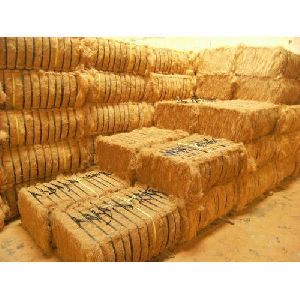
Coir Fiber Bales
20 - 25 Per Kilogram
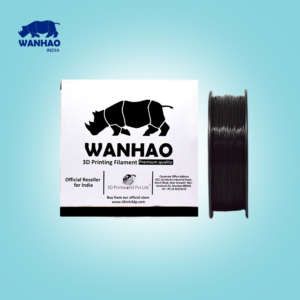
Wanhao 1.75mm HIPS Black 3D Printer Filament
Get Price Quote

Coconut Fibre
20 Per Cubic Meter
1110 Bag(s) (MOQ)
We supply coconut fibre and rope coir pith blocks from Bharath Trading House Bangalore
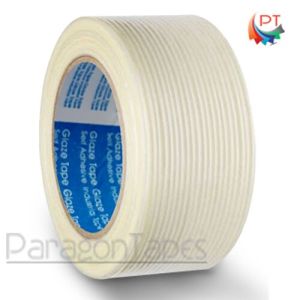
mono filament
Get Price Quote
We Paragon Tape deal with heavy-duty packaging tape with glass fibres. it is non breakable with masking properties.

Viscose Fiber
Get Price Quote
As a dependable Supplier from Indore(India), we ensure that our customers obtain only quality assured products. Supported by superior transportation system, we can easily make safe and quick deliveries within the promised time span.

ACCCUMAXE FIBRE
480 Per Packs
100 Bottle (MOQ)

Coir Fiber
Get Price Quote
A spongy material that binds the coconut fibre in the husk, coir pith is finding new applications. It is an excellent soil conditioner and is being extensively used as a soil-less medium for agri-horticultural purposes. With its moisture retention qualities, coir pith is ideal for growing anthodium’s and orchids. Available in raw form or converted into organic manure. Details : History - Ropes and cordage have been made from coconut fiber since ancient times. Indian navigators who sailed the seas to Malaya, Java, China, and the Gulf of Arabia centuries ago used coir for their ship ropes. Arab writers of the 11th century AD referred to the extensive use of coir for ship ropes. A coir industry in the UK was recorded before the second half of the 19th century. During 1840, Captain Widely, in co-operation with Captain Logan and Mr. Thomas Treloar, founded the known carpet firms of Treloar and Sons in Ludgate Hill, England, for the manufacture of coir into various fabrics suitable for floor coverings. Structure - Coir fibers are found between the hard, internal shell and the outer coat of a coconut. The individual fiber cells are narrow and hollow, with thick walls made of cellulose. They are pale when immature, but later become hardened and yellowed as a layer of lining is deposited on their walls. Each cell is about 1 mm (0.04 in) long and 10 to 20 µm (0.0004 to 0.0008 in) in diameter. Fibers are typically 10 to 30 centimeter’s (4 to 12 in) long. The two varieties of coir are brown and white. Brown coir harvested from fully ripened coconuts is thick, strong and has high abrasion resistance. It is typically used in mats, brushes and sacking. Mature brown coir fibers contain more lining and less cellulose than fibers such as flax and cotton.so are stronger but less flexible. White coir fibers harvested from coconuts before they are ripe are white or light brown in color and are smoother and finer, but also weaker. They are generally spun to make yarn used in mats or rope. The coir fiber is relatively waterproof, and is one of the few natural fibers resistant to damage by saltwater. Fresh water is used to process brown coir, while seawater and fresh water are both used in the production of white coir. It must not be confused with coir pith, or formerly coco peat, which is the powdery material resulting from the processing of the coir fiber. Coir fiber is locally named 'coprah' in some countries, adding to the confusion. Processing - Green coconuts, harvested after about six to 12 months on the palm, contain pliable white fibres. Brown fibre is obtained by harvesting fully mature coconuts when the nutritious layer surrounding the seed is ready to be processed into coprah and desiccated coconut. The fibrous layer of the fruit is then separated from the hard shell (manually) by driving the fruit down onto a spike to split it (DE husking). A well-seasoned husker can manually separate 2,000 coconuts per day. Machines are now available which crush the whole fruit to give the loose fibers. These machines can process up to 2,000 coconuts per hour. Coir Fiber - The main product of our company is Coir Fiber. We produce the high quality Coir Fiber in the industry. It is the byproduct of coconut. The individual fiber cells are narrow and hollow, with thick walls made of cellulose. They are pale when immature but later become hardened and yellowed as a layer of lignin, is deposited on their walls. Mature coir fibers contain more lignin and less cellulose than fibers such as flax and cotton and so are stronger but less flexible. The coir fiber is elastic enough to twist without breaking and it holds a curl as though permanently waved. They are widely utilized for the stuffing and puffing of furniture. It is also commonly used in packaging industry for the purpose as the base to safeguard and protect delicate products as coir fibers are perfect shock absorber. Moreover Coir fiber is also used in the processing of handicrafts items and ropes. Besides, we are proud yet again to inform that we are leading Natural Coir Fiber sellers in the market. Coir Fiber - Brown is extracted out of matured brown coconut. It is used for various applications like making Curled Coir Rope used in manufacturing coir mattresses, rubberized coir pads, coir cushions, carpet under lays, seat cushions and for insulating drainage pipes. Brown coir pads are sprayed with rubber latex, which bonds the fibres together (rubberized coir) and is extensively used as upholstery padding for the automobile industry. Coir Fiber - Brown is also used for insulation and packaging. Coir Fiber - Yellow is made out of immature green coconut husk. Coir Fiber - White is used for various applications like making two ply yarn used in manufacturing various coir products such as carpets. The major use of white coir is in rope manufacture. Mats of woven coir fiber are made from the finer grades of bristle and white fiber using hand or mechanical looms. White coir also used to make fishing nets due to its strong resilience to salt water. Coir Fiber - Yellow is generally spun to make yarn that is used in mats or rope. Brown fiber - The fibrous husks are soaked in pits or in nets in a slow-moving body of water to swell and soften the fibers. The long bristle fibers are separated from the shorter mattress fibers underneath the skin of the nut, a process known as wet-milling. The mattress fibers are sifted to remove dirt and other rubbish, dried in the sun and packed into bales. Some mattress fiber is allowed to retain more moisture so it retains its elasticity for twisted fiber production. The coir fiber is elastic enough to twist without breaking and it holds a curl as though permanently waved. Twisting is done by simply making a rope of the hank of fiber and twisting it using a machine or by hand. The longer bristle fiber is washed in clean water and then dried before being tied into bundles or hanks. It may then be cleaned and 'hackled' by steel combs to straighten the fibers and remove any shorter fiber pieces. Coir bristle fiber can also be bleached and dyed to obtain hanks of different color’s. White fiber - The immature husks are suspended in a river or water-filled pit for up to ten months. During this time, micro-organisms break down the plant tissues surrounding the fibers to loosen them a process known as retting. Segments of the husk are then beaten by hand to separate out the long fibers which are subsequently dried and cleaned. Cleaned fiber is ready for spinning into yarn using a simple one-handed system or a spinning wheel. Researchers at CSIR's National Institute for Interdisciplinary Science and Technology in Thiruvananthapuram have developed a biological process for the extraction of coir fiber from coconut husk without polluting the environment. The technology uses enzymes to separate the fibers by converting and solubilizing plant compounds to curb the pollution of waters caused by retting of husks. Buffering - Because coir pith is high in sodium and potassium, it is treated before use as a growth medium for plants or fungi by soaking in a calcium buffering solution; most coir sold for growing purposes is said to be pre-treated. Once any remaining salts have been leached out of the coir pith, it and the coco chips become suitable substrates for cultivating fungi. Coir is naturally rich in potassium, which can lead to magnesium and calcium deficiencies in soilless horticultural media. Coir fiber is rarely used as a potting material, except for orchids, and does not need buffering, as it has a very low caution-exchange capacity (CEC) capacity, hence not retaining salts. Coir does provide a suitable substrate for horticultural use as a soilless potting medium. The material's high lignin content is longer-lasting, holds more water, and does not shrink off the sides of the pot when dry allowing for easier rewetting. This light media has advantages and disadvantages that can be corrected with the addition of the proper amendment such as coarse sand for weight in interior plants like Dracaena. Nutritive amendments should also be considered. Calcium and magnesium will be lacking in coir potting mixes, so a naturally good source of these nutrients is dolomitic lime which contains both. pH is of utmost importance as coir pith tends to have a high pH after some months of use, resulting in plant stunting and multiple deficiencies. Coir has as well the disadvantage of being extremely sensitive to the Leucocoprinus greenhouse fungus. The addition of beneficial microbes to the coir media have been successful in tropical greenhouse conditions and interior spaces as well. However, it is important to note that the microbes will engage in growth and reproduction under moist atmospheres producing fruiting bodies (mushrooms). Bristle coir - Bristle coir is the longest variety of coir fiber. It is manufactured from retted coconut husks through a process called defibering. The coir fiber thus extracted is then combed using steel combs to make the fiber clean and to remove short fibers. Bristle coir fiber is used as bristles in brushes for domestic and industrial applications. Uses[edit] Cordage, packaging, bedding, flooring, and others Making coir rope in Kerala, India Red coir is used in floor mats and doormats, brushes, mattresses, floor tiles and sacking. A small amount is also made into twine. Pads of curled brown coir fibre, made by needle-felting (a machine technique that mats the fibres together), are shaped and cut to fill mattresses and for use in erosion control on river banks and hillsides. A major proportion of brown coir pads are sprayed with rubber latex which bonds the fibres together (rubberised coir) to be used as upholstery padding for the automobile industry in Europe. The material is also used for insulation and packaging. The major use of white coir is in rope manufacture. Mats of woven coir fibre are made from the finer grades of bristle and white fibre using hand or mechanical looms. White coir also is used to make fishing nets due to its strong resistance to saltwater. Agricultural and horticultural uses[edit] In agriculture and horticulture, coir is a substitute for sphagnum (peat moss) and peat because it is widely available and environmentally friendly. Many sources of coir however are heavily contaminated with pathogenic fungi, and the choice of the source is important. Coir is also useful to deter snails from delicate plantings, and as a growing medium in intensive glasshouse (greenhouse) horticulture. Coconut coir from Mexico has been found to contain large numbers of colonies of the beneficial fungus Aspergillus terreus, which acts as a biological control against plant pathogenic fungi. Coir is also used as a substrate to grow mushrooms. The coir is usually mixed with vermiculite and pasteurised with boiling water. After the coir/vermiculite mix has cooled to room temperature, it is placed in a larger container, usually a plastic box. Previously prepared spawn jars are then added, spawn is usually grown in jars using substrates such as rye grains or wild bird seed. This spawn is the mushrooms mycelium and will colonize the coir/vermiculite mix eventually fruiting mushrooms. Coir is an allergen, as well as the latex and other materials used frequently in the treatment of coir.[11] Coir can be used as a terrarium substrate for reptiles or arachnids.[12][13 Coir pith is collected during the process of coir fibre extraction from coconut husk. About 5Kg of pith is obtained for every Kg of fibre extracted. Till recent year, it was considered as waste and research has found many applications of coir pith. It is eco-friendly and bio-degradable. Coir is the outside layer of husk that surrounds the shell of the coconut. It consists mainly of fibers, which have traditionally been used to manufacture rope, carpets, doormats, upholstery stuffing, brushes etc. Between these fibers’ is the corky substance called Coir pith or coir dust, which has recently been widely recognized as this superior and perfect organic growing medium for fruits such as strawberry, vegetables such as pepper, cucumber, tomatoes, and flowers such as gerbera, gladiol, lily, anthurium and rose. Coir pith is 100% organic and natural growing media. It is a multipurpose growing medium. The horticulture industry often calls this substrate coco-peat (or coco peat) or coir-peat. Coir pith is used as combustible fuel in boilers in some countries as the colorific of coir pith is high. Also it is used as an organic fertilizer in horticulture and floriculture as a soil container and substitute for soil. Its water retaining capacity and compressibility besides light weight are the main characteristics which make it widely applicable. Coir pith not only revitalizes your plants, it induces uniformity in growth by enhancing water retention and microbial activity. Coir pith contains high quality of nutrients that keep the soil healthy in a natural way. It acts as a top dressing that helps maintain moisture and reconditions the soil. Uses of Coir Pith Blocks As a potting mix - Coir pith block can be used as potting medium. It can be mixed with required fertilizers and nutrients according to the type of plant to be grown. For mushroom growers - Coir pith block can be used as potting medium. It can be mixed with required fertilizers and nutrients according to the type of plant to be grown. As a soil supplement & Prevents regular watering - Coir pith block can be used as potting medium. It can be mixed with required fertilizers and nutrients according to the type of plant to be grown. For generating seeds - Coir pith block can be used as potting medium. It can be mixed with required fertilizers and nutrients according to the type of plant to be grown. For tissue cultured plan - Coir pith block can be used as potting medium. It can be mixed with required fertilizers and nutrients according to the type of plant to be grown.
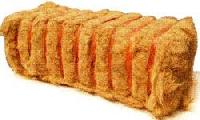
Coir Fiber
Get Price Quote
We are the main supplier of this product.
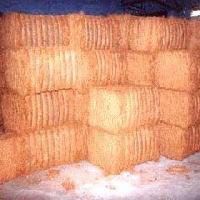
Coir Fiber Bales
Get Price Quote
The company is a well-known Exporter of Coir Fiber Bales. The range of Coir Fiber Bales made available by us is high on quality and easy to handle. We offer Coir Fiber Bales in manageable forms, so as to convenience the clients. Also, the variety of Coir Fiber Bales we provide is delivered in well-sealed and packaged form, at the best prices. We generally offer yarn ranging from 5mm to 25mm. Our clients can have spools of 5-6 kg and hangs of 2-3 kg, as per their requirements. It is packed in bales for easy and economical transportation. Our Coir Fiber is highly resistant to salt water and is water proof. Brown in color, these are baled with iron hoops, which is extensively rust proof. These yarns are used in geo-textile manufacturing process.

Coir Fiber
Get Price Quote
We are a credible Manufacturer, Exporter and Supplier of Coir Fiber based in India. The Coir Fiber is a natural fiber extracted from the husk of coconut. It is used in making ropes, floor mats, doormats, brushes, mattresses, etc. Our Coir Fiber is properly processed and treated under controlled conditions ensuring high quality. It is completely free from impurities. We make available Coir Fiber in premium packaging material of different sizes at market leading prices.

Coir Fibre
25 - 28 Per Kilogram
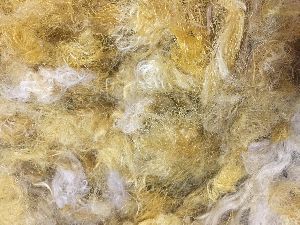
Knitsilk Throwster Silk Yarn Fiber - 100 Grams
Get Price Quote
We bring forth a unique range of Natural Throwster Silk Yarn Waste produced during the sari making process. This fiber can be used to spin yarns, carding, art & craft works. It can be dyed and used in great project works. Highly sought after in all nkinds of markets, this product adheres to international quality nstandards.n n Note: Color may differ slightly from photos due to different monitor settings.
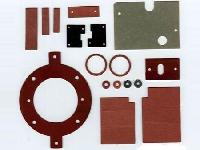
Red Fibre
Get Price Quote
We offer red fibre.+

hair fibers
1,000 - 1,500 Per Bottle
1 Bottle(s) (MOQ)
We are the leading manufacturers, exporters and supplier of this products.

Coir Fibre
Get Price Quote
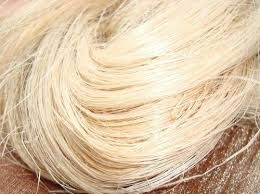
natural banana fiber
Get Price Quote

Colored Polyester Fiber
Get Price Quote

Cement Polypropylene Fibre
Get Price Quote
Our Cement Polypropylene Fibers are made using best quality materials and help in improving the surface properties of concrete in which they are used. They have excellent mechanical properties like they are resistant to fire and shocks. We pack our Cement Polypropylene Fibre in Polythene and cotton boxes. We provide our Cement Polypropylene Fibre in bulk as well as small quantities and ensure timely delivery.

coco fibre
10 - 15 Per Kg
50 Ton (MOQ)
Coco fiber

wood Husk coir
Get Price Quote

Banana Fiber
Get Price Quote
10kgs Kilogram (MOQ)
We are offering banana fiber. White in colour length is 120-180 centemeters and we can take minimum order of 10kgs -8 tons ,if ur payment is done after 4-5 working days u can receive ur order

coco coir products
Get Price Quote